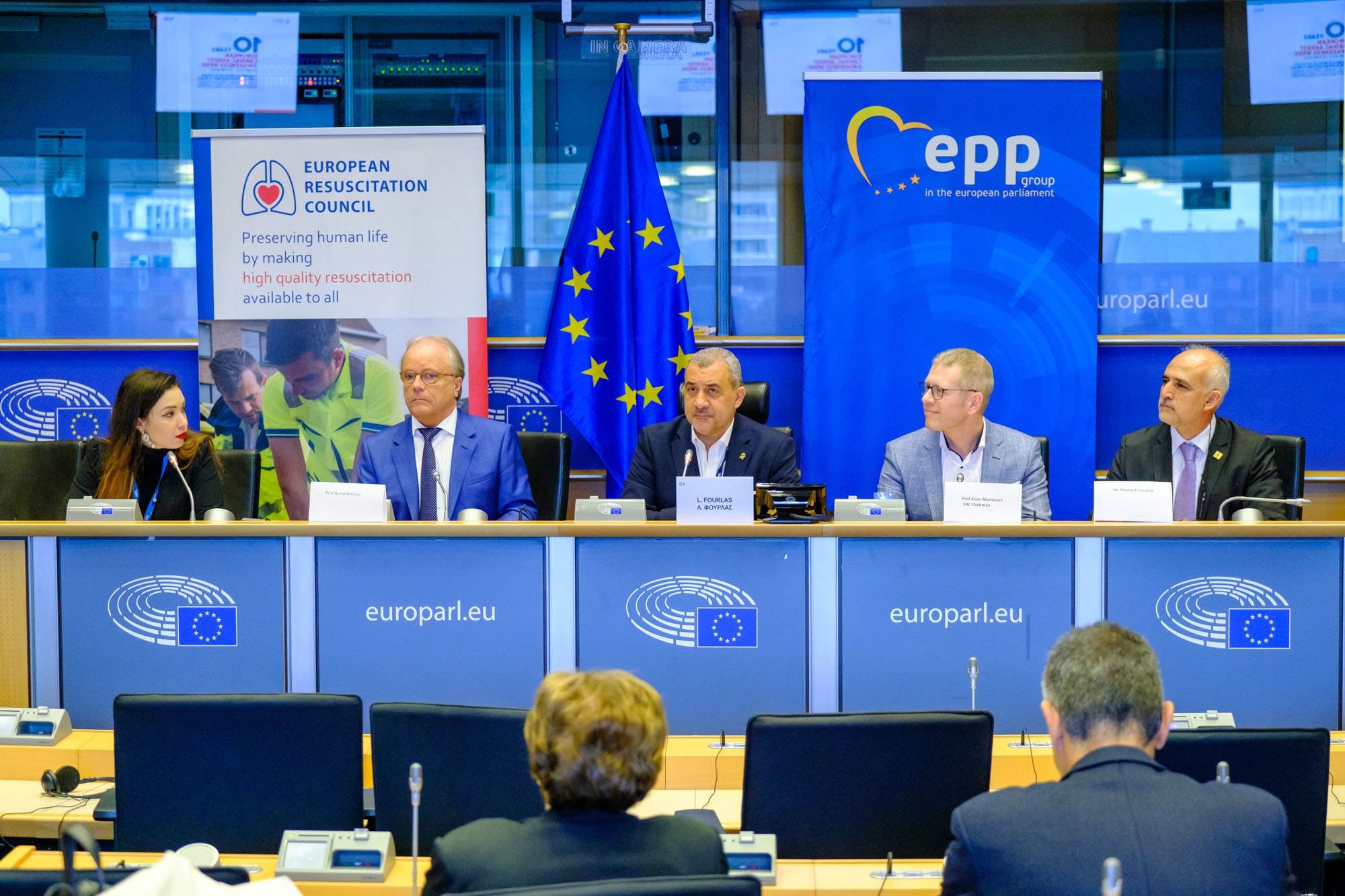
The amendment proposed by the ERC has been adopted by the European Parliament.
ERC celebrated the 10th anniversary of 'European Cardiac Arrest Awareness Week' at the European Parliament on 16th November 2022. After the successful meeting at the European Parliament, the European Resuscitation Council proposed an amendment related to European cardiac arrest awareness week.
We are happy to announce that the amendment that the ERC suggested, has been implemented in the report by Member of Parliament Loucas Fourlas (who is the rapporteur for the European Year of Skills 2023) and has been adopted with 21 votes in favour. The report on European Year of Skills 2023, including has been adopted by the Employment Committee of the European Parliament.
This is one step closer to the benefit of European citizens. The summary of the amendment is attached below.
Amendment:
(25a) Following the Declaration of the European Parliament of 14 June 2012 on establishing a European cardiac arrest awareness week (56a), it is important to bring to the attention of citizens that sudden cardiac arrest is the third leading cause of death in the Union with nearly 350,000 fatalities every year. Immediate intervention by citizens in the Union performing the skills of simple chest compressions and if possible, also rescue breathing (CPR – CardioPulmonary Resuscitation), including delivery of defibrillation with an automated external defibrillator (AED), can triple survival, as demonstrated in a nationwide initiative. To increase the number of survivors after sudden cardiac arrest by 100,000 every year in the Union, more persons need to apply those skills to bridge the time until professional emergency medical services arrive. The most efficient and sustainable measure to increase the rate of persons able to perform CPR is to educate schoolchildren in resuscitation as an essential skill from primary to secondary school. This has also been recommended by the World Health Organization since 2015, and it is supported by many national and international organisations and social partners. Educating schoolchildren in CPR will also increase resilience and positive social behaviour in citizens in the Union. The European Resuscitation Council 2021 guidelines describe the framework to implement those specific skills across the Union.